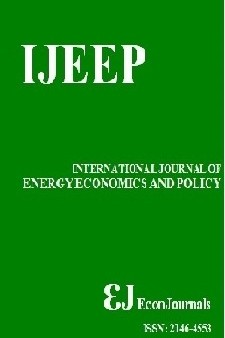Energy Security, Trade and Transition to Green Economy in Africa
Energy Security, Trade and Transition to Green Economy in Africa
Environmental challenges have enhanced renewed focus on the need to drive the economy in an economically, socially and environmentally sustainable manner; therefore resulting to the emergence of the concept of green economy. In driving the economy towards a green growth path, the pattern of trade and security of energy will play a vital role. Energy (renewable) has been identified as one of the 6 sectors that would provide trade opportunities for export markets in the transition towards a green economy, particularly for developing economies, Africa inclusive. This can be done through use of appropriate policies and trade remedies geared towards enhancing the infrastructural and technological capacities of these countries towards the exchange of environmentally friendly goods and services. Through the export of renewable energy such as solar, wind, biofuels, given their abundant supply in Africa; energy security would be achieved with transition to a greener growth path as against a “brown” or (“dirty”) growth. From the foregoing, this study explores the components of trade-offs and synergies in relation to trade and security of energy in Africa in the wake of the need for the continent to switch to green economy using a sample of 43 selected African countries (2006-2013). The data engaged are sourced from the World Development Indicators. Some important findings and their policy implications are documented in the study.
- Başlangıç: 2011
- Yayıncı: İlhan ÖZTÜRK
Sayıdaki Diğer Makaleler
Oil Price and Employment Nexus in Saudi Arabia
Tarek Tawfik Yousef ALKHATEEB, Haider MAHMOOD, Zafar Ahmad SULTAN, Nawaz AHMAD
Geopolitics of the Republic of Turkey’s Energy Policy
José Maria Gonçalves Nunes de Melo, Samuel Façanha Câmara, Fabíola Gomes Farias, Fábio Nóbrega de Lima, Ana Augusta Ferreira de Freitas
Testing the Shock Effect of Some Policy Variables on Electricity Generation in Nigeria
Samuel Nnamdi Marcus, Amachukwu Chibuzo Okezie
Olusola Joshua OLUJOBİ, Olabode Adeleke OYEWUNMİ
İsmail Tijjani IDRİS, Sabri NAYAN
Consequences of Oil and Food Price Shocks on the Ecuadorian Economy
Jesser Roberto Paladines Amaiquema, Alexander Ruben Paladines Amaiquema
